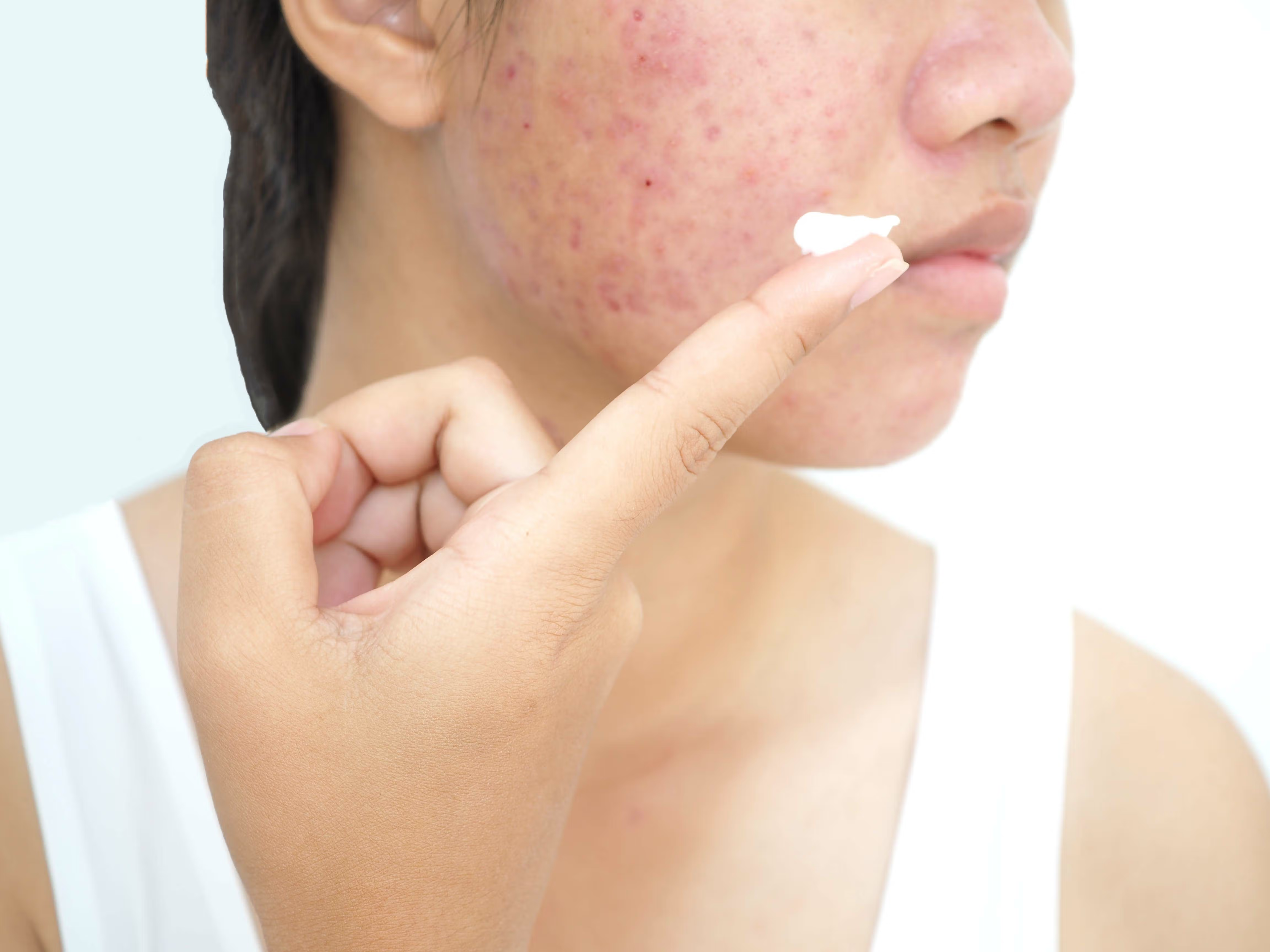- Case-Based Roundtable
- General Dermatology
- Eczema
- Chronic Hand Eczema
- Alopecia
- Aesthetics
- Vitiligo
- COVID-19
- Actinic Keratosis
- Precision Medicine and Biologics
- Rare Disease
- Wound Care
- Rosacea
- Psoriasis
- Psoriatic Arthritis
- Atopic Dermatitis
- Melasma
- NP and PA
- Skin Cancer
- Hidradenitis Suppurativa
- Drug Watch
- Pigmentary Disorders
- Acne
- Pediatric Dermatology
- Practice Management
- Prurigo Nodularis
- Buy-and-Bill
Article
Teledermatology helps patients help themselves
Author(s):
Teledermatology eases disease management for young acne patients.
Telemedicine, the remote delivery and follow-up of medical services and clinical data via telecommunications technology, is as widely practiced in dermatology as it is in any medical discipline-indeed, teledermatology has become a term unto its own.
As noted by the American Telemedicine Association, “Teledermatology is one of the most active applications of telemedicine rendered in the United States. Dermatology is particularly suited to the use of advanced communication technologies and the internet for delivery of care. By using advanced communication technologies, dermatologists are able to widen their reach to patients in a cost-effective manner.”
Dermatologist Iltefat Hamzavi, M.D., can testify to that. As a physician at Hamzavi Dermatology and affiliate Dermatology Specialist Group in Michigan, Dr. Hamzavi has made a specialty of treating adolescents with acne-and one of his most effective tools is teledermatology.
A match for teen patients
“The value of teledermatology, especially in its use with adolescent acne patients, is that it allows them to do what they have to do in terms of compliance on their own schedule, and gives the physician a non-intrusive means by which to communicate with the patient to ensure compliance,” Dr. Hamzavi tells Dermatology Times. “With teledermatology, young people feel more at ease, they feel more like they’re on their own turf, and don’t have to take time away from work or school to meet with their doctor. I’ve found that this connection allows for better compliance-and if there’s no compliance, there are no results.”
Dr. Hamzavi says he never uses teledermatology for the first visit-that’s always done face-to-face. But for follow-ups, he says, teledermatology is very effective.
READ: Childhood burn care: A telemedicine success story
“At least with this particular demographic, the adolescent acne patient, teledermatology allows for carrying out a treatment plan pretty much on their own time,” Dr. Hamzavi says. “Young people these days, more so than older generations, are very comfortable with communicating and interacting online-some even prefer it.”
That’s especially true for more introverted or self-conscious young acne patients, who may feel more free to communicate their concerns, ask questions, have their acne scars assessed and track their treatment-things they might feel less comfortable about in a face-to-face visit.
An area of compliance that Dr. Hamzavi has found problematic-and for which teledermatology is no magic bullet-is the taking of the acne drug isotretinoin. Because it is a fat-soluble medication, guidelines call for isotretinoin to be taken along with a high-fat meal, which isn’t particularly healthy and can be an obstacle to compliance for some patients. Dr. Hamzavi suggests the use of isotretinoin-Lidose, which enhances absorption, but also says the problem can be handled simply by suggesting the patient take the isotreinoin with a glass of milk or some French fries.
As for the role of teledermatology, Dr. Hamzavi emphasized that there are no studies to show that it may be the wave of the future for improving compliance-though he is considering taking up such a study. Studies have shown, however, that satisfaction is high with teledermatology as compared with office-based visits.
“My opinion of teledermatology is based solely on my own experience and my colleagues’ anecdotal experiences,” he tells Dermatology Times. “We’ve found it to be highly effective with compliance and patient satisfaction.”
As have many fellow dermatologists.
NEXT: Not just for young patients
Not just for young patients
“I am a proponent of teledermatology,” says Helen M. Torok, M.D., Trillium Creek Dermatology in Medina, Ohio. “I use it to interact with patients when they call and have an urgent problem. We exchange pictures and diagnoses, and I often will call in prescriptions based on what was viewed on the text message. We use our patient portals in a similar manner.”
Patients love it, she says-and not just young patients.
“Some of my patients are off in Florida in the winter or on vacation, and they are enthralled with the ease, efficiency and connection to their dermatologist-they literally have their skin doc in their pocket!” Dr. Torok says. “I find that patients in the 39- to 50-year-old range really love it, use it and appreciate it more than teenagers.”
READ: Teledermatology enables efficient patient triage
Unbiased regulations needed
Omaha, Neb., dermatologist Joel Schlessinger, M.D., says that while he’s intrigued by teledermatology and the opportunities it may offer, the dermatologic community needs to proceed thoughtfully before jumping on the bandwagon.
“For now, there are many unanswered questions and concerns,” he says. “One such concern is the ownership of teledermatology and promulgation of rules governing it by the same individuals. While ownership implies having a stake in the game, it also could lead to a lack of governance and preferential status for those companies with representatives on the boards and in study groups.”
READ: Teledermatology improves patient triage
Dr. Schlessinger says he thinks teledermatology will become more popular-“and even essential”-in the years ahead.
“But we want to have a strong basis in fair and unbiased regulations,” he says. “Additionally, given the huge importance that dermatology could have in this area, our specialty should drive the discussion and offer constructive advice to marshal the process through and assist with patient safety considerations.”
Disclosures: Dr. Hamzavi is an advisor for and has an ownership interest in MyDerm Portal





